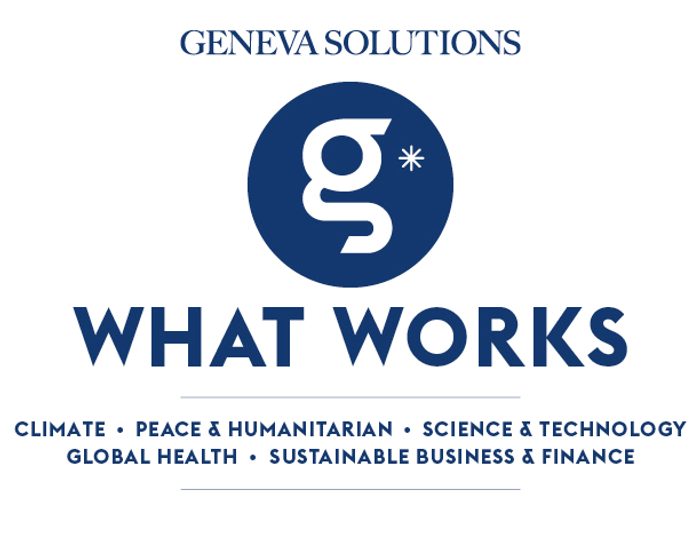Hi, this is Kasmira. Our colleagues at Le Temps tell the story this week of a young first aid worker employed by a Geneva association in Gaza who has been detained by Israeli forces under its Unlawful Combatants law.
In Cali, where countries have gathered to discuss how to protect the Earth’s species, the idea of a biodiversity credits market is catching attention. And, with many global health funds suffering from donor fatigue and failing to meet their targets, is it time to look for new financing models? |

|

Mohammed Alazbat, in Gaza, working for project Smile. (DR/Le Temps)
|
|
Hired by Swiss association, the young Gaza resident detained in Israeli desert.
For two years, Mohammed Alazbat was employed by the Geneva association Yaffa, working for its project "Smile", a community psychosocial support programme for children and their families in Gaza. But for the last six months, the first aid worker has been imprisoned in Israel, which accuses him of being an "unlawful combatant". His journey, writes Le Temps, could be that of hundreds and hundreds of Gazans. Amnesty International has described the military detention centre where in Israel's Negev desert, where several "unlawful combatants" have been held for prolonged periods, including Alazbat, without a charge or trial as a virtual "black hole". His lawyer is ready to take the case to the Israeli Supreme Court.
Le Temps (FR)
|
|
|
💵SELLING BIODIVERSITY TO SAVE IT.
As countries gather in Cali to discuss how to protect the Earth’s species, one fundamental question is bound to arise – how to finance conservation efforts.
One idea that has been catching on and is being seriously developed by some actors, including one UN organisation and the World Economic Forum, is a biodiversity credits market.
|
|
How it works.
Much like a carbon credit, a biodiversity credit should essentially quantify a chunk of nature so that it can be bought and sold.
|
|
Not an offset.
Unlike a carbon credit, the aim is not to compensate for biodiversity loss, which is localised.
|
|
The snag.
The carbon market’s credibility issues have left a mark, leaving many sceptical about what sounds like a cheap spin-off.
The International Union for the Conservation of Nature’s boss was categorical in a recent interview with Geneva Solutions: Indigenous peoples, who are the most concerned by these financial schemes, which pretty much slap a market price on their preserved lands, must be part of the conversation.
- Michelle Langrand
|
|
Here's what else is happening
|

A young child is seen at a health clinic in Papua New Guinea where the polio vaccine is administered to children on 24 July 2018. Gavi, the Vaccine alliance launched a replenishment campaign in Paris on 17 October asking for $9bn to help fund programmes including expanding its vaccine coverage for young children. (Keystone/EPA/Gavi/Brendan Esposito)
|
|
💭How the world funds global health is starting to look outdated.
As donor fatigue sets in, it is perhaps time to review the old funding model behind Gavi, the Global Fund and other major health funds, which heavily rely on rich countries to foot the bill but also serve as a crutch for some middle-income countries that no longer need the support, writes Bright Simons.
Devex
|
|
|
GS news is a new media project covering the world of international cooperation and development. Don’t hesitate to forward our newsletter!
Have a good day!
|

|
|
Avenue du Bouchet 2
1209 Genève
Suisse
|
|
|
|









